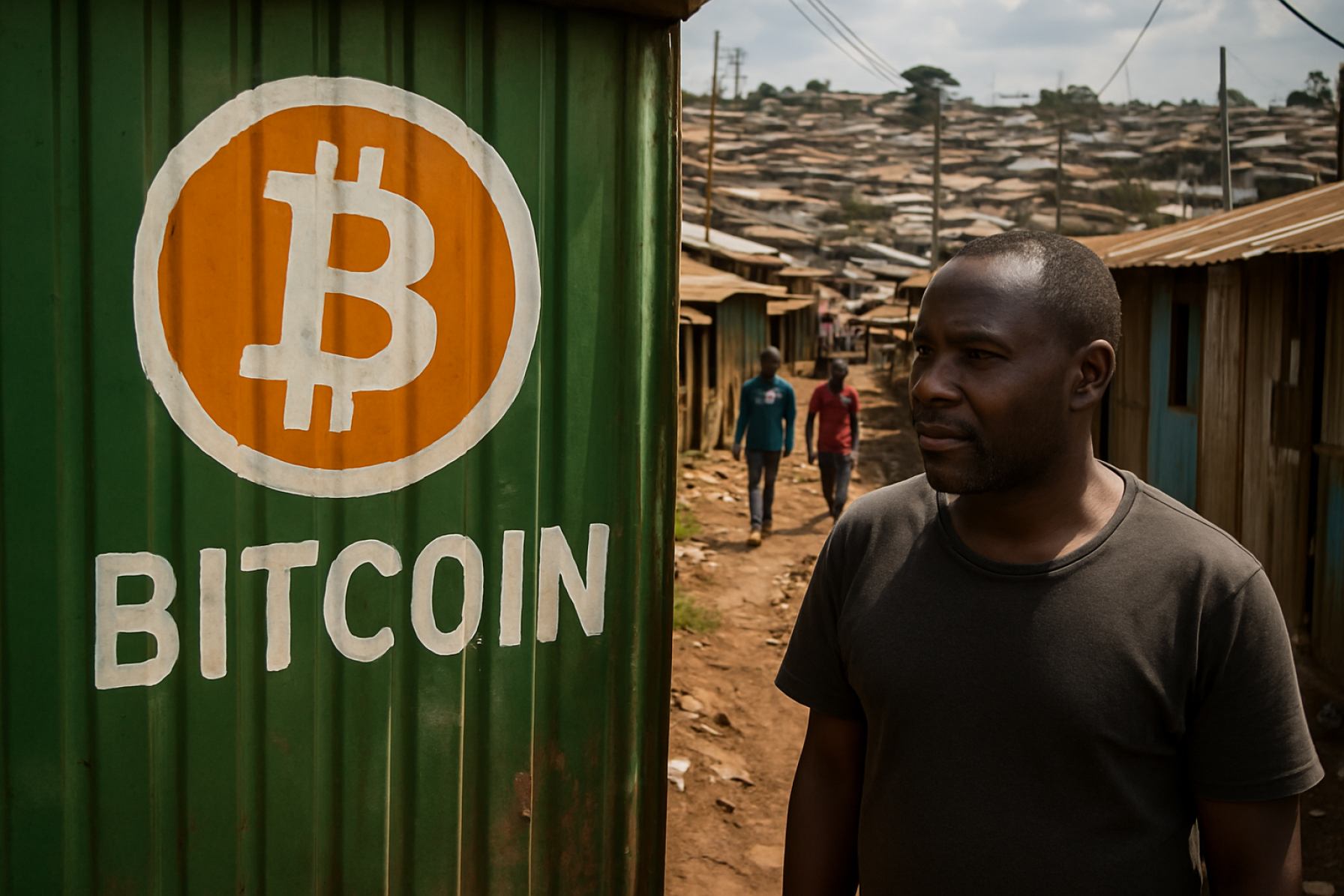Why Bitcoin Is Taking Over Kenya’s Largest Slum in 2025—But Are There Unexpected Dangers?
In Kenya’s Kibera, bitcoin is changing lives but also raising risky new questions. Is crypto the real answer for financial inclusion in Africa?
- 200+ Soweto West residents now use bitcoin for daily transactions
- $10,000 worth of grants seeded into the community by AfriBit Africa
- 10% of some vegetable sellers’ sales are now in bitcoin
- Up to 80% of some users’ wealth is held in crypto
Bitcoin is no longer just for tech-savvy investors or Silicon Valley whales. In 2025, it’s breathing new hope into places many financial services forgot—like Soweto West, deep within Nairobi’s sprawling Kibera slum.
Around worn market stalls and dusty paths, new stories of financial freedom are emerging. But so are serious concerns that vulnerable communities may be rolling the dice with their futures.
How Is Bitcoin Spreading in Kibera?
It all started with AfriBit Africa, a homegrown fintech on a mission to rewrite the rules of access. Since 2022, their nonprofit wing has funneled nearly $10,000 in bitcoin grants to neighborhood cleanup crews.
Every Sunday, dozens of young, tech-curious garbage collectors gather—not just to sweep streets, but to earn a few dollars in bitcoin. The process is easy and instant, skipping over traditional banks and paperwork.
Once in their digital wallets, the coins are more than just salary; they become a source of pride and possibility. Some market vendors—like vegetable seller Dotea Anyim—welcome the change, with roughly 10% of customers opting for crypto payment.
Why Do Locals Prefer Bitcoin Over M-PESA?
In a country famed for its revolutionary M-PESA mobile money, why leap to an entirely new system?
Merchants and users tell a convincing story: Bitcoin transactions are quick, free from relentless fees, and rarely dogged by network delays. That’s a game-changer for entrepreneurs like 23-year-old Damiano Magak, who says bitcoin helps him bypass costly payments and slowdowns that plague M-PESA.
With prices for everyday goods rising and income sources uncertain, some residents hope that holding bitcoin might deliver future gains—if the crypto market surges.
But How Big Are the Risks?
As the crowds grow, some experts sound alarms. In Soweto West, where a single lost dollar can mean going hungry, many residents now hold an astonishing 70%–80% of their wealth in bitcoin—far more than most seasoned investors would risk.
Fintech leader Ali Hussein Kassim worries that if crypto markets tumble, it could mean disaster for families with few safety nets. While bitcoin’s promise of “banking without banks” fits perfectly in under-served places, the harsh volatility could dig new traps for the poor.
Can Bitcoin Bridge the Financial Divide in Africa?
The potential is huge. In places where official IDs, paperwork, and fees wall off basic banking, digital currencies can break new ground. Bitcoin gives anyone with a phone the keys to a digital wallet—no questions asked.
Already, local businesses and citizens are forging alternative economies with crypto, sparking hope for broader financial inclusion across Africa’s cities and towns. Governments and NGOs are taking notice, with debates only intensifying as trends accelerate in 2025. For more on global crypto adoption, see Binance and CoinDesk.
How Can Residents Stay Safe—and Maximize Benefits?
– Diversify: Don’t put all your earnings in crypto; hold some cash for emergencies.
– Get trained: Organizations like AfriBit Africa offer education in basic crypto security.
– Watch the markets: Crypto is famous for wild swings—check regularly.
– Partner up: Work with trusted community leaders, not unknown intermediaries.
– Advocate: Push for better regulation and awareness campaigns from local authorities.
Bitcoin is shaking up the status quo in places that need it most. But with new power comes new responsibilities. If you’re in, play smart—your future might depend on it.
Bitcoin Survival Checklist for Emerging Communities:
- Create a secure digital wallet and back up your credentials.
- Never invest more than you can afford to lose.
- Stay informed about crypto’s price swings and trends.
- Attend local workshops or webinars for free crypto education.
- Encourage neighbors to diversify and share safety tips.
